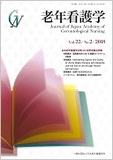Japanese
English
- 販売していません
- Abstract 文献概要
- 参考文献 Reference
抄録
近年,中等度以上の難聴は補聴器の使用が推奨されるが,自覚に乏しい高齢者が多い.また,糖尿病は難聴の危険因子のひとつとして知られているが,臨床的にあまり注目されていない.
本研究の目的は,高齢糖尿病患者において,問診,指こすり法,純音聴力検査よる聴力評価を行い,高齢糖尿病患者における難聴の割合を調査すると同時に,指こすり音聴取法を用いた中等度以上の難聴スクリーニング法の有用性について検討することを目的とした.対象者は,高齢糖尿病患者150人.平均年齢は75.1±5.8歳であり,中等度以上の難聴の該当は49人(32.7%)で難聴がある群では有意に高齢で配偶者のない頻度が高かった.指こすり法による難聴の該当は,61人(40.7%)であった.難聴の自覚や他者からの難聴の指摘といった問診による難聴の頻度はそれよりも低かった.
中等度以上の難聴と指こすり法による難聴の感度は,71.4%,特異度74.3%で,問診よりも感度は高かったが,特異度は低かった.
高齢者における指こすり法は,簡便で,問診に比較してより客観的という点から高齢者の中等度以上の難聴スクリーニングに適していると考えられた.
While the use of hearing aids is recommended for moderate or higher levels of hearing loss, many elderly people exhibit poor individual awareness of symptoms. Moreover, despite diabetes being a risk factor in hearing loss, clinically it has received little attention.
The purpose of this study was to investigate the frequency of moderate or higher hearing loss defined by pure tone audiometry in elderly diabetes outpatients, and to validate the usefulness of the finger friction test (FFT) in screening for moderate or higher hearing loss, by comparing hearing evaluation using patient history inquiry. The participants were 150 elderly diabetes patients with an average age of 75.1 ± 5.8 years. Forty-nine individuals (32.7%) presented with moderate or higher levels of hearing loss, and within the hearing loss group, the frequency of having no dependents was significantly high. Sixty-one individuals (40.7%) presented with hearing loss based on the FFT. The frequency of detection based on patient history inquiry, such as individual awareness of symptoms and others, suggesting possible hearing loss, was lower than the number of cases detected by the FFT.
The sensitivity of the FFT in detecting moderate or higher levels of hearing loss was 71.4%, and specificity was 74.3%. The sensitivity was higher than that of the patient history inquiry, but specificity was lower.
As such, for elderly populations, the FFT is considered to be suitable to screen for moderate or higher hearing loss, due to its convenience and superior objectivity as compared to those of patient history inquiry.
Copyright © 2018, Japan Academy of Gerontological Nursing All rights reserved.


